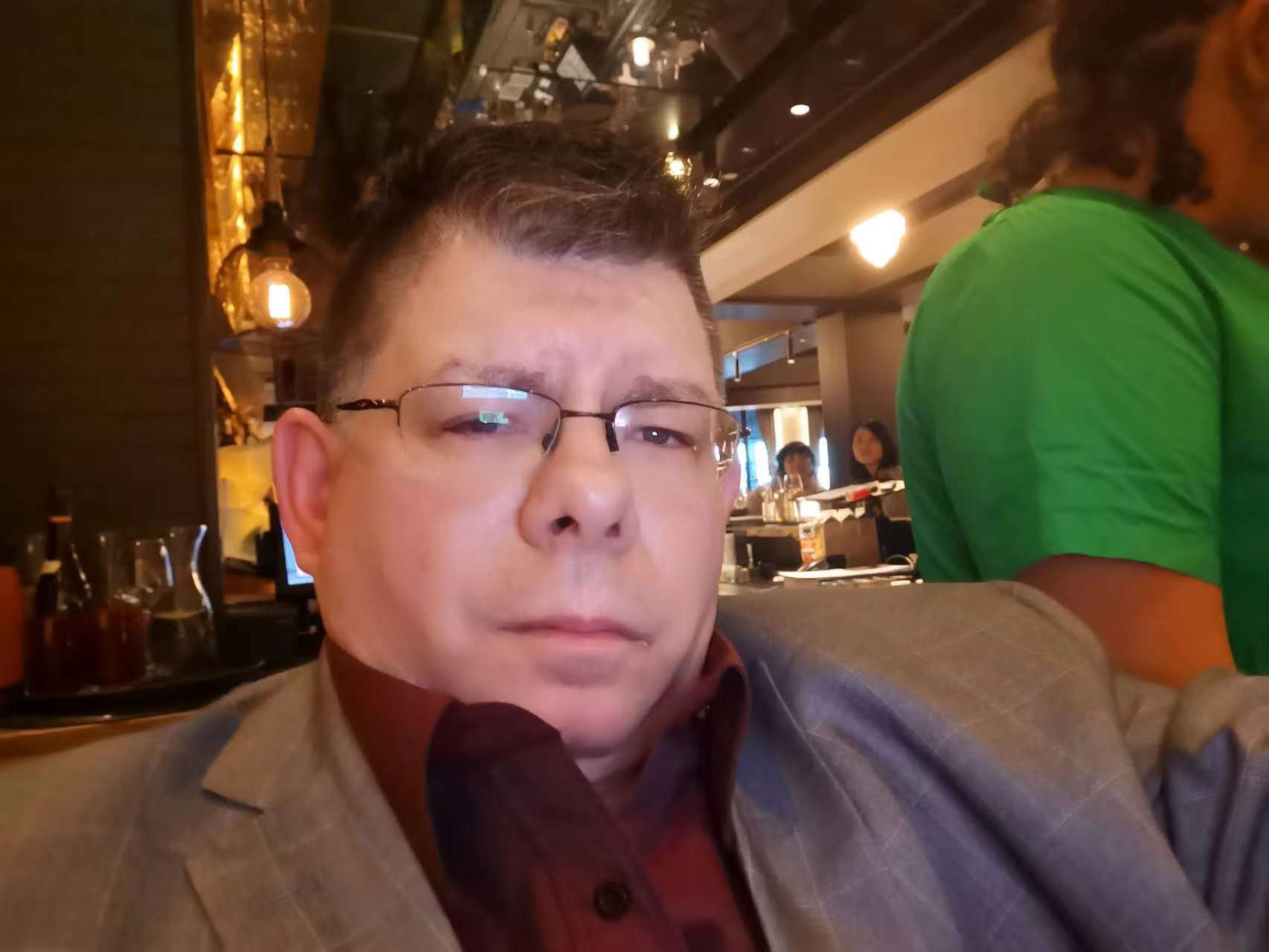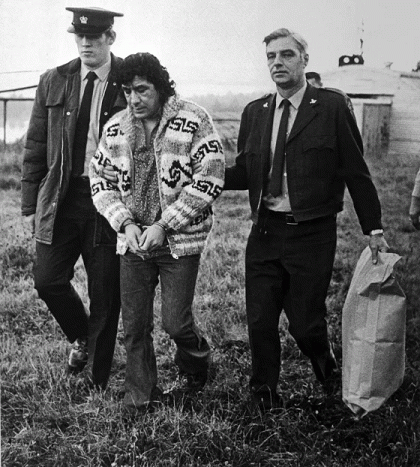In 1977, Leonard Peltier was convicted of two counts of first-degree murder in the deaths of two Federal Bureau of Investigation (FBI) agents, Ronald Arthur Williams and Jack Ross Coler. The charges stemmed from a June 26, 1975 shootout between American Indian Movement (AIM) activists, of which Peltier was one, and the FBI at the Jumping Bull ranch compound on the Pine Ridge Indian Reservation in South Dakota. This resulted in the deaths of the agents, and also an indigenous man, Joseph Stuntz, whose death remains unsolved and appears to have never been investigated at all.
In the aftermath of the shooting, three men, all AIM activists, were eventually arrested in connection with the deaths of the two agents. Two of the men, Robert Robideau and Darrelle "Dino" Butler were acquitted on the grounds of self-defense. In the trials of Robideau and Butler, they were able to argue and show evidence that an atmosphere of violence existed on the Pine Ridge Reservation at the time. Meanwhile, Peltier was not allowed to argue or show the same evidence, and he was convicted and sentenced to two consecutive life terms. In the decades since, Peltier's conviction has been criticized for its lack of fairness. There is a clear argument that witness coercion, evidence withholding and mischaracterization have occurred leading many individuals and organizations to believe that Peltier was wrongly convicted.
As of this time, Leonard Peltier has spent nearly 50 years in prison.
Leonard Peltier, American Indian Movement leader, is led across Oakalla Prison to a waiting helicopter, on Dec. 17, 1976, on Burnaby, British Columbia.Bettmann Archive click here
So, I came to the issue of Leonard Peltier a little late in life for an indigenous person. Frankly, I was in my mid-twenties before I genuinely thought about or even bothered to look into it. Even now, I cringe at my ignorance. I knew who he was, of course, and in general, knew the story, but just didn't think a whole lot about it, if at all. I was much more into reading and telling stories. Thinking about socioeconomic issues on reservations. About the cultural tornado that exists between Indigenous and non-Indigenous communities. I grew up on the Blackfeet Reservation, but was bussed off of it to a non-reservation town, Cut Bank, to attend school. My interests always were in telling those kinds of stories. I just didn't really have much interest in the story of Leonard Peltier.
My friend Dine' poet Sherwin Bitsui once wrote "I map a shrinking map."
In my incognizance, I didn't realize that Leonard Peltier was my shrinking map. In a world where I saw indigenous issues within certain boundaries and then within those boundaries even more boundaries, I neglected to see how related his story was to the ones that I always thought about. Now I don't think Leonard Peltier is all that different of a person than the main characters of novels that I love, like James Welch's "Winter In The Blood" or N. Scott Momaday's "House Made of Dawn." Nor do I see those characters as being much different than each other. These were men who struggled with society. Their conflict was with the outside world.
But those are fictional stories.
Let's talk real life.
I am a reservation Indian, this conflict with the outside world I understand and live with every day, even now. But then, as a young man, it was all fresh to me. I couldn't really see beyond that. AIM was an organization founded by urban Indians, I thought of them more as coming from another world and then into our world, or as someone who left our world, entered another and then eventually came back. It didn't seem the same to me. They were "like" us, but different. They came from another place on that map.
But this was not true.
They weren't "like" us, they were us.
I didn't realize that you never become totally comfortable with the outside world. Not when you are part of a community who has so much conflict and history of conflict with that world. Leonard Peltier was probably at his most comfortable back on a reservation. Supporting and protecting the traditional ways of his people. And, yes, even radicalizing them with regards to their disenfranchisement. This radicalization helped lead to many advancements for indigenous people in the 1970s. Language revitalization, low-income housing, and imperfect yet better health care are examples. And, in 1978, President Jimmy Carter signed the American Indian Religious Freedom Act into law.
Ojibwe author, David Treuer wrote "The effect of this act was profound. Younger and urban Indians had a chance to discover and participate in traditions that had been lost to them."
(Note: You can view every article as one long page if you sign up as an Advocate Member, or higher).






